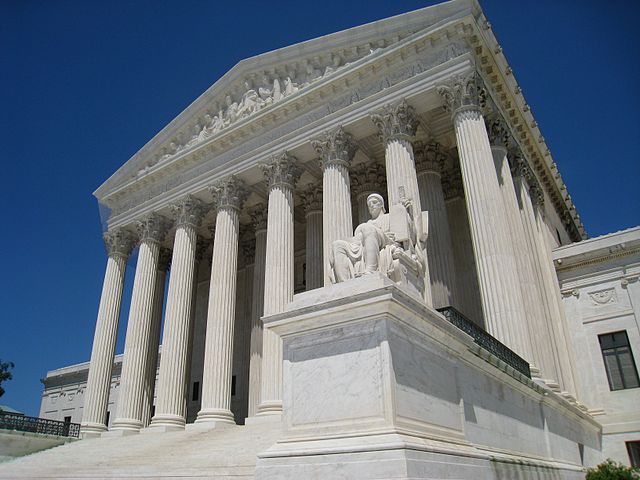 On his first day in office, President Trump issued dozens of executive orders attacking the nation’s climate and clean air protections.
On his first day in office, President Trump issued dozens of executive orders attacking the nation’s climate and clean air protections.
Buried in one of these orders is direction to the Environmental Protection Agency to make recommendations by February 19th on the “legality and continued applicability” of EPA’s Endangerment Finding.
The Endangerment Finding is EPA’s science-based determination that greenhouse gases – the pollution that causes climate change – harm public health and welfare.
The directive to reconsider the Endangerment Finding comes straight from Project 2025 and is both cynical and deeply concerning given the mountain of scientific evidence supporting the Finding, the devastating climate harms Americans are experiencing right now, and EPA’s clear obligation to protect Americans’ health and welfare.
Shortly after receiving President Trump’s directive, EPA’s acting Administrator summarily fired the agency’s independent Science Advisory Board – the very scientists who can speak to the extensive scientific basis supporting EPA’s Endangerment Finding.
The real-world consequences of any effort by EPA Administrator Lee Zeldin and the Trump administration to destabilize the Endangerment Finding would be severe and unlawful and would hurt Americans across the country.
What is the Endangerment Finding?
In 2007, the Supreme Court determined that greenhouse gases are air pollutants within the unambiguous meaning of the Clean Air Act and that EPA must make a science-based determination as to whether greenhouse gas pollution endangers public health and welfare.
Following the Supreme Court’s decision, in 2009, EPA issued the Endangerment Finding, which determines that climate pollution threatens the public health and welfare of current and future generations.
Here are a few things you should know about EPA’s finding:
It’s supported by extensive science
The Endangerment Finding is based on a vast amount of scientific evidence that climate pollution harms human health. It was adopted after extensive public process, including multiple opportunities for public input and evaluation of more than 380,000 public comments.
The final Endangerment Finding includes detailed information confirming that greenhouse gas pollution is driving destructive changes in our climate that pose a grave and growing threat to Americans’ health, security, and economic well-being, both now and in the future. These include health harms from increased smog, rising temperatures and extreme weather events, among other things.
Over time, the scientific evidence has only become stronger. The intergovernmental expert body charged by Congress with assessing the impacts of climate change on the United States has issued a series of National Climate Assessments, most recently by the Trump Administration in 2018 and the Biden Administration in 2023. The National Climate Assessments confirm that climate change resulting from greenhouse gas emissions is causing extensive, and increasingly severe harms throughout the country.
EPA has also continued to document the science behind greenhouse gases’ contributions to climate change, including in earlier responses to requests that it reevaluate the Endangerment Finding (here and here) and in multiple actions establishing pollution standards for power plants, cars and freight trucks, and oil and gas facilities – some of which include scientific assessments that were completed within the last year. And in legal filings supporting these actions, climate scientists have pointed to very recent scientific evidence that even more strongly confirms these climate pollution harms.
In short, the science unequivocally supports what so many Americans are already experiencing – climate pollution is causing harm in communities across the country. There is no question about the Endangerment Finding’s “continued applicability.”
Courts have repeatedly affirmed its Legality
Unsurprisingly, given the extensive evidence supporting it, courts have uniformly rejected legal challenges to the Endangerment Finding.
For instance, the finding was upheld by the D.C. Circuit Court of Appeals in 2012. Industry groups had challenged EPA’s use of scientific assessments, but the court held that EPA’s findings were supported by substantial evidence and that the agency had considered the scientific evidence before it in “a rational manner.”
Then the Supreme Court denied petitions for certiorari (review) that raised challenges to the Endangerment Finding in October 2013.
More recently, the D.C. Circuit again rejected challenges to the finding and the Supreme Court again denied review.
The findings have been the basis of agency decisions across administrations of both parties and have been the basis of numerous judicial decisions. As to the Endangerment Finding’s “legality,” the answer is also a clear and unequivocal “yes.”
Commonsense steps to cut pollution, protect communities
Beyond being grounded in the science, law, and the everyday experience of many Americans, the Endangerment Finding is important because it empowers EPA to do its job – protecting Americans from harmful climate pollution.
EPA has done just that since adopting the Endangerment Finding by taking commonsense steps to reduce climate pollution from large sources like power plants, cars and trucks, and oil and gas operations. These actions have been enormously successful in reducing pollution and delivering immediate benefits to Americans across the country.
It is vital that these commonsense measures remain in place. Recent EDF analysis looks at 11 key actions (including the foundational EPA climate protections mentioned above) that together will reduce more than 28 billion metric tons of climate pollution by 2055. That’s almost five times the total amount of annual emissions from the United States today.
New threats to the Endangerment Finding
President Trump’s efforts to reverse the Endangerment Finding come straight from Project 2025 – the infamous policy playbook crafted in part by Russell Vought, the new head of the White House’s Office of Management and Budget. Targeting the Endangerment Finding is extreme, dangerous, and puts the important benefits mentioned above at risk. It also goes well beyond anything the first Trump administration undertook.
Undermining the Endangerment Finding would be inconsistent with the commitments EPA Administrator Zeldin made during his confirmation hearing. Despite EPA’s recent dismissal of its independent Scientific Advisory Board, Administrator Zeldin affirmed that “I am someone who believes strongly that we should work with the scientists, leaving the science to the scientists … Fortunately, at EPA, we do have many talented scientists who provide that research.” (Senate EPW Committee transcript page 34) He repeatedly committed to “honoring our obligations under the law,” and said that “we will have never done enough to ensure that our water and our air is clean, safe, and healthy. Whatever we do every day to achieve this objective, we need to wake up the next day looking for ways to do more.” (Transcript page 37)
It is simply not possible to square these statements with any effort to destroy a science-based finding, affirmed by the courts, that provides the foundation for EPA’s efforts to protect Americans’ health and well-being from harmful climate pollution today and going forward.
For more information, please see the letter and appendix of relevant documents EDF recently sent to EPA on the Endangerment Finding.











